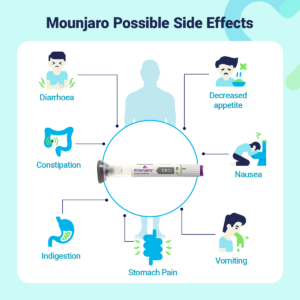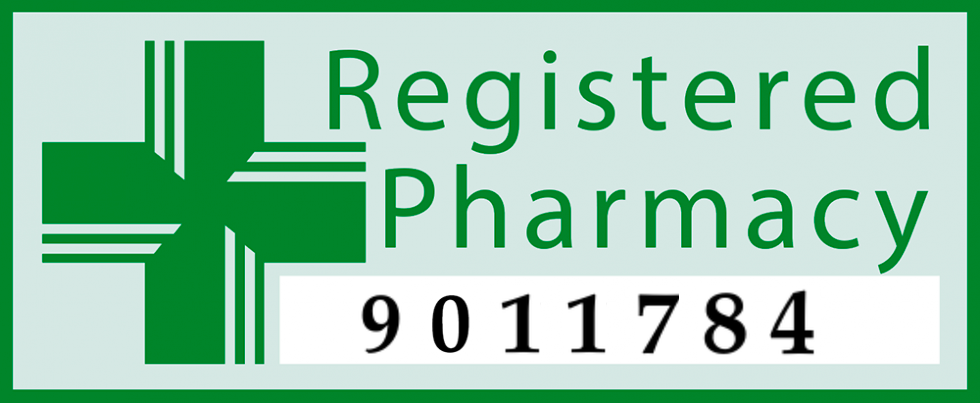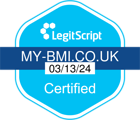When it comes to medication safety first is always the smartest approach.
Weight management medications have had a bit of a bad rap over the years as dangerous products claiming to help you lose weight rapidly have circulated on dodgy websites.
However, genuine treatments like Orlistat or GLP-1 agonist injections have been clinically proven to help patients lose weight safely when used in conjunction with healthy lifestyle changes.
So why is Orlistat prescribed to weight loss patients who need a helping hand on their journey to a healthy weight?
Stick with us and we’ll explain how Orlistat works and the regulations put in place to ensure patient safety during treatment.
What does Orlistat do?
Orlistat is the type of medication known as a fat binder, meaning it binds to the fat in your food so your body can dispose of it.
This brings down your daily fat and calorie intake, making it easier for you to lose weight.
When paired with a balanced diet and regular exercise routine, this can help those with a high BMI reach a healthy weight range.
Patients taking Orlistat will also need to reduce their dietary fat to around 30% calories from fat to get the best from this treatment.
For many, this will help to reduce their calorie intake anyway, which will naturally help with weight management.
Is Orlistat safe to use?
Orlistat is safe to use by those who have been given it by a medical professional, like a prescriber or pharmacist.
It’s a licensed and regulated weight loss medication with specific guidelines patients need to meet before a medical professional provides it.
For example, they will check your current BMI to see whether yours is over 30, which is one of the criteria for taking this medication.
They will also ask you a few questions about your medical history and other medications you’re taking so they can be sure that this medication will be right for you.
If they don’t think Orlistat is going to be suitable for you, they may recommend some other options, whether that be other weight management treatments or resources to help you improve your diet and exercise routines.
Are there any severe side effects?
Every medication has side effects, but some are more serious than others.
Orlistat has some of these side effects, but there isn’t any information available to say how often they can occur.
Still, it’s best to familiarise yourself with all the potential side effects your medication can have before you begin your treatment, so you can seek medical attention if you need to.
The potentially serious side effects of Orlistat include:
- Symptoms of a severe allergic reaction, e.g. difficulty breathing or swallowing, an itchy rash, hives, a rapid heartbeat, swelling of the face, mouth, tongue, or throat, collapsing
- Bleeding from your back passage
- Symptoms of inflammation of the large intestine, e.g. lower stomach pain, fever, constipation
- Symptoms of inflammation of the pancreas, e.g. severe abdominal pain, fever, feeling or being sick
- Skin blistering
- Gallstones
- Symptoms of hepatitis, e.g. yellowing skin and eyes, itching, dark coloured pee, stomach pain, pain under the front of your rib cage on the right-hand side, loss of appetite
- A build-up of calcium oxalate which may lead to kidney stones
You may not experience any of these serious side effects during your treatment, but if you do then you should speak to a medical professional right away.
If your symptoms are particularly severe, you may need to seek emergency medical assistance from your local A&E department or by calling 999.
Do I need a prescription for fat binders?
You don’t always need a prescription for Orlistat fat binder capsules — it depends on the strength of your treatment.
60mg Orlistat capsules like Alli and Orlos are available to purchase over the counter from pharmacies, providing you meet the criteria we mentioned earlier.
On the other hand, 120mg capsules like Xenical are only available on prescription, so you’ll only be able to get them from your GP or another qualified prescriber.
If you’re not sure which strength of treatment you would need, you should speak to your local pharmacist or prescriber for advice.
They’ll be able to give you a better idea of how your treatment would go if it is right for you.
Is this medication safe for diabetics?
Orlistat may be recommended to those who are at risk of type 2 diabetes as a way to help them manage their weight.
This is because obesity is a serious risk factor for this type of diabetes, and getting to a healthy weight range can reduce that risk quite a bit.
With that being said, if you already have any form of diabetes you should speak to your GP or healthcare team before beginning any new medication, including Orlistat.
They will need to check whether this medication is safe for you and whether it would interact with any other medications you may be taking.
It’s always better to be safe than sorry!
Is Orlistat safe during pregnancy or breastfeeding?
Orlistat should not be taken during pregnancy or while you’re breastfeeding.
When you’re pregnant, you should avoid taking any unnecessary medications to reduce the potential for harm to yourself or your baby.
If you’re worried about weight gain during your pregnancy you should speak to your GP or a member of your healthcare team.
They will be able to recommend resources that are available to help you with weight management, which can include diet plans, exercise routines, and help from the NHS’s weight management program.
Remember, if you’re concerned about anything during your pregnancy you should bring it up with a medical professional, who will be able to set your worries to rest.
I follow a keto diet — will I be able to take Orlistat safely?
The keto diet is a low-carb and high-fat diet, which means that it probably wouldn’t be compatible with Orlistat.
When you’re taking Orlistat you’ll need to eat no more than 19 grams of fat per meal, which may not work in conjunction with keto.
Of course, everyone is different, so we’d recommend speaking to your prescriber, GP, or pharmacist about any concerns you have about how your diet would work with your medication.
They will be able to help you make any necessary changes to your diet or recommend other weight management treatments if Orlistat isn’t right for you.
Now you know more about Orlistat and the safety regulations around it, we hope we’ve put your mind at ease.
There’s no harm in using a weight management treatment that has been prescribed or provided to you by an experienced medical professional who has your best interests in mind.
If you’d like to learn more about weight loss medications and how they could help you reach a healthy weight, here are a few of our other articles that could help you make an informed decision about your treatment.


















